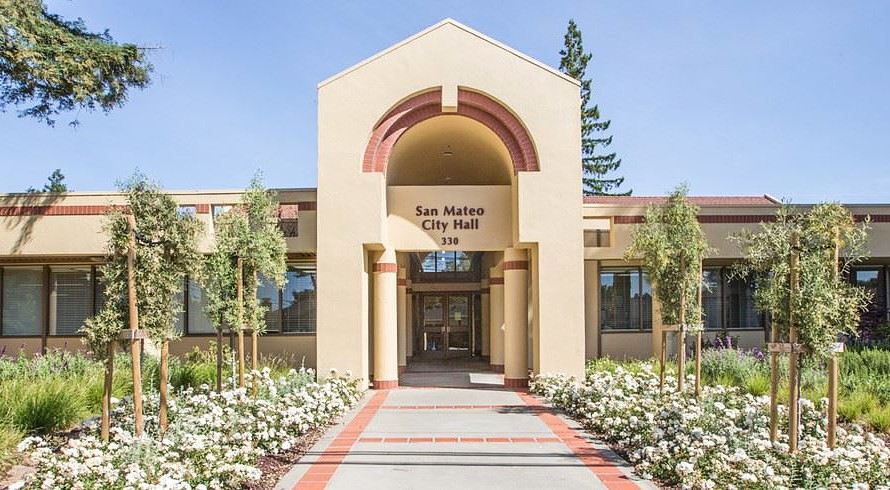San Mateo will pay $450,000 to settle a lawsuit involving the city’s denial of a 10-unit market-rate housing project in the city, in a case that challenged a state law that aims to limit the power of local governments to restrict new housing development.
The California Renters Legal Advocacy and Education Fund (CaRLA) sued the city alleging it violated the Housing Accountability Act (HAA) when it rejected the 10-unit, market-rate condominium project on W. Santa Inez Avenue in 2018. The HAA was enacted in 1982 and expanded and strengthened in 2017 in order to address statewide housing shortages.
The City of San Mateo said it denied the W. Santa Inez Avenue condo project due to neighbor concerns. The project proposal ultimately failed, according to the city, because it did not comply with the city’s Multi-Family Design Guidelines, “specifically a requirement to step back or create a transition between the proposed 4-story building and neighboring single-story homes.”
In late 2019, the San Mateo County Superior Court ruled in favor of the city’s argument that the step back requirement was an objective standard and also ruled the HAA interfered with cities’ constitutional ability to make their own decisions around land use and development. Last month, the state Court of Appeal reversed the Superior Court rulings in favor of the housing advocates, finding the city’s arguments “unpersuasive.”
The city ultimately decided at that point to settle the lawsuit, agreeing not to appeal to the state Supreme Court and also to pay $450,000 in attorney’s fees and costs to petitioners including CaRLA.
“This lawsuit over a 10-unit market rate housing development that offered no affordable units was not reflective of the City’s history of expanding affordable housing opportunities through innovative policies and programs,” San Mateo Mayor Eric Rodriguez said in a statement Thursday. “We agree that expanding housing in California is critical and over the last four years alone the City has approved over 2,000 new housing units, including more than 430 affordable below-market rate homes.”
CaRLA has said that its legal victory “reaffirms the constitutionality of the Housing Accountability Act, a law enacted to prevent cities from arbitrarily and subjectively disapproving of housing developments.”
“This is not only a significant victory for CaRLA, but also for all Californians who feel the effects of a housing crisis that people acknowledge, but no one wants to fix in their own backyards,” Dylan Casey, CaRLA’s Executive Director, said in a statement. “San Mateo tried to deny the creation of new homes by reinterpreting its own vague and subjective design review standards at the last minute. This is exactly the type of behavior that the Housing Accountability Act was enacted to prevent. Cities cannot be allowed to misuse their permitting process to prevent housing that is supposed to be allowed under their own existing rules and general plan.”
Photo courtesy of the City of San Mateo






